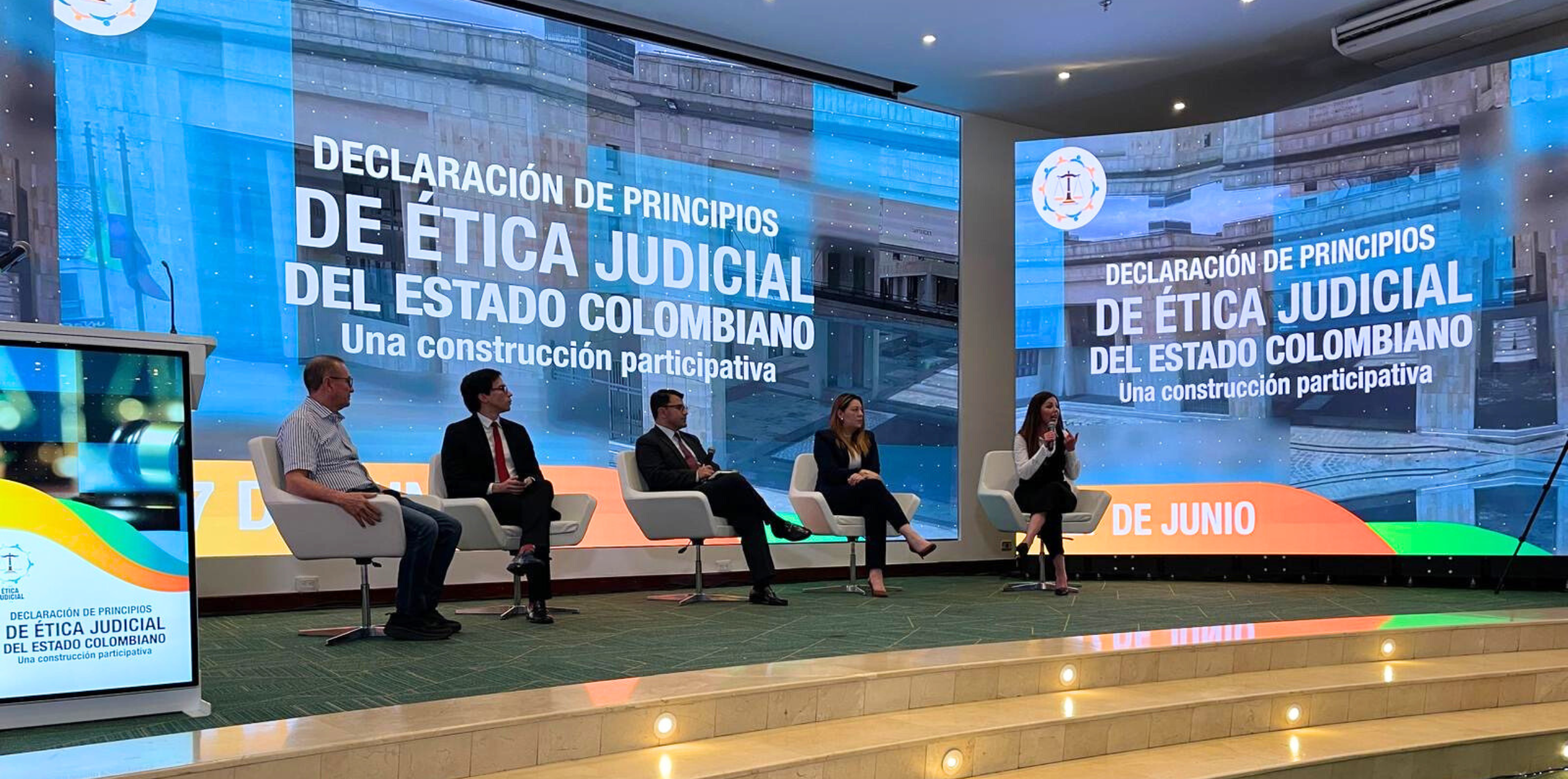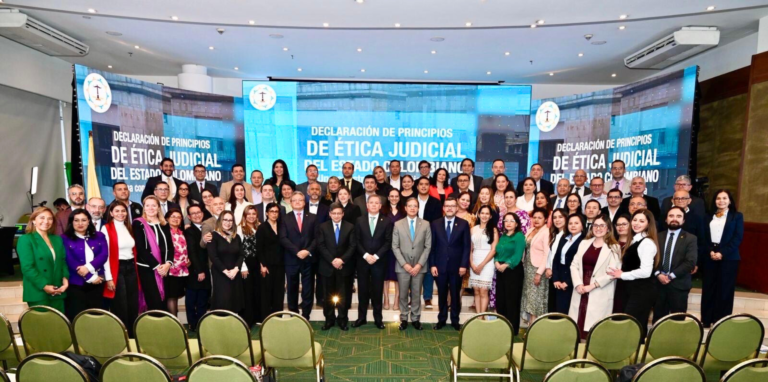For several years, the American Bar Association’s Rule of Law Initiative implemented programs in Colombia to improve the capacity of judges and court personnel, combat human trafficking cases and public corruption, strengthen judicial practice in rural areas, further migrant integration and citizen security, and support environmental defenders in the Amazon region. These programs were funded by the United States government through its Department of State.
With the Colombian courts, we strengthened the competencies of judges and prosecutors through ABA ROLI-designed judicial education programs addressing key issues, such as criminal law. For example, some of this work was facilitated through our four-year program bolstering the capacity of the Rodrigo Lara Bonilla Judicial Training School in addressing Colombia’s criminal justice challenges and the needs of a diverse judicial system.
During this time, ABA ROLI built a dynamic and robust partner network in the country, ranging from government ministries, judicial institutions and local organizations, including the Superior Council of the Judiciary (Spanish, Consejo Superior de la Judicatura—CSJ).
In June, Colombia officially drafted the country’s Declaration of Judicial Ethic Principles for the Colombian Judicature, which will serve as the basis for Colombia’s judicial code of conduct. It consists of three distinct parts: justification, goals and impact; principles; and recommendations to assure and guarantee its actual implementation. This groundbreaking initiative was led by the Superior Council of the Judiciary, with support from the National Judicial Council and the Rodrigo Lara Bonilla Judicial Training School and was technically led by ABA ROLI.

ABA ROLI’s Mauricio Diaz moderated the ceremony’s closing session alongside the four judges who summarized the Declaration of Judicial Ethic Principles for the Colombian Judicature. (Photo courtesy of the ABA Center for Global Programs)
It will serve as a key reference for current and future justice sector operators worldwide. Six hundred eighty judges from across the country participated in the process. The declaration had a huge impact on civil society and the media, published in the following outlets: El Tiempo and El Nuevo Siglo.
ABA ROLI’s senior technical adviser in Washington, D.C., Silvana Stanga, with vast worldwide expertise of more than 40 years in judicial education and on the strengthening of judicial institutions, led this endeavor on behalf of ABA ROLI. Her work was based on strategic planning and quality principles, with a strong emphasis on judicial values.
Colombia’s Supreme Court of Justice invited ABA ROLI and Stanga to lead this initiative since April 2025, particularly for educational and institutional strengthening activities. The president of the Judges Association co-facilitated the event. Colombia’s Supreme Court of Justice highlighted the high-level working sessions from June 26 to 27 before the official ceremony announcing the declaration, featuring Stanga at 0:23.
“I am proud of the work ABA ROLI could do to support Colombia’s judiciary in this historic endeavor. The present declaration is the first step in a series of activities aimed at strengthening the judiciary in Colombia.” —Silvana Stanga, ABA ROLI senior technical adviser
ABA ROLI’s partnership with the Superior Council of the Judiciary was pivotal for our work in the country. In this regard, between 2019 and 2023, ABA ROLI assisted the JTS, which is the institutional educational unit of the National Judicial Council. This was done as part of a program aimed at strengthening the judges’ competencies in organized crime. In 2023 and 2024, we hosted a four-part judicial training module in collaboration with the CSJ on combating human trafficking, emphasizing the importance of strengthening the competencies of judicial officials in Colombia.

ABA ROLI’s Silvana Stanga (far right) sits alongside the presidents of Colombia’s High Courts, including the chief justice, at the ceremony for the declaration.
In April 2023, ABA ROLI launched its Rural Justice Program to address the complex challenges faced by the Colombian judicial system in combating organized crime and ensuring access to justice, especially in remote rural regions, such as Antioquia, Arauca, Chocó, Guajira, Nariño and Norte de Santander. The program was in collaboration with Colombia’s Superior Council of the Judiciary with assistance from the Federal Judicial Center. Additionally, the program conducted a needs assessment phase, directly engaging with beneficiaries in the targeted regions.

Our work in Colombia is one example around the world where ABA ROLI made a positive impact, including supporting human rights abuse cases in Guatemala, bolstering civil actor networks in Sri Lanka focused on religious freedom, and providing pivotal mentorship workshops for lawyers in Zambia to challenge oppressive laws on fundamental freedoms.
For the past 35 years, the ABA’s Center for Global Programs, which includes the Rule of Law Initiative and the Center for Human Rights, has implemented over 1,000 initiatives in more than 100 countries focused on a range of technical areas, such as access to justice, legal education and professionalism, human rights, criminal justice, commercial law, gender and social inclusion, judicial system strengthening and anti-corruption efforts. This work would not be possible without our dedicated staff, partners and funders.
However, just like similar grant-funded organizations, ABA CGP was affected by the U.S. government’s halt on foreign-aid funding and stop-work orders since January 2025. Since then, ABA CGP has closed over 80 programs and 25 field offices and laid off hundreds of employees around the world and in Washington, D.C. In this new reality, ABA CGP is seeking non-USG programs and contracts, where it can continue supporting communities and institutions around the world. Consider donating to ABA CGP’s fundraiser furthering the rule of law, access to justice and human rights for all.
ABA Abroad is a column highlighting the work of the ABA’s Center for Global Programs, which comprises the Rule of Law Initiative, the Center for Human Rights and the ABA’s presence at the United Nations.
This column reflects the opinions of the author and not necessarily the views of the ABA Journal—or the American Bar Association.

